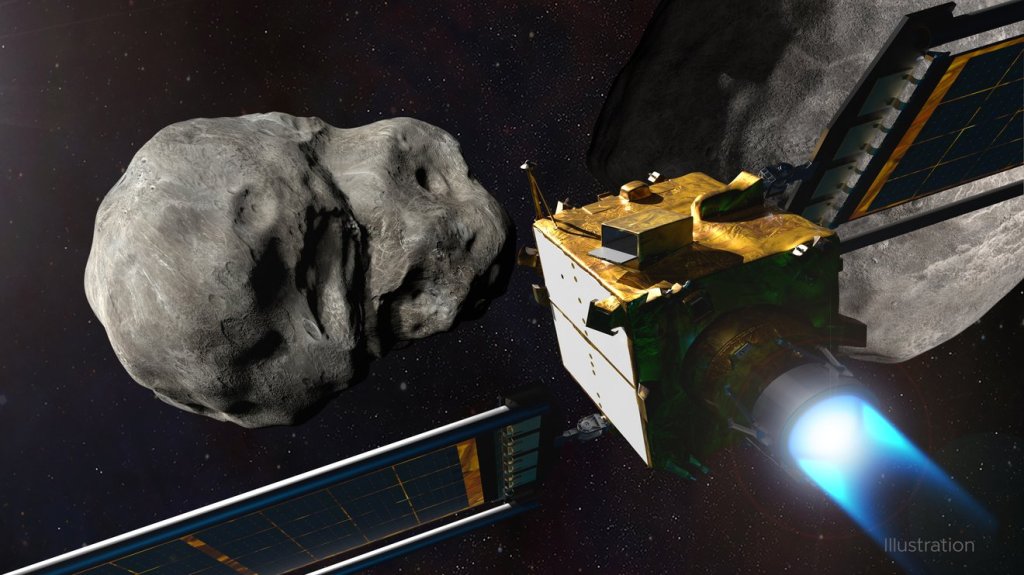To get a roundup of TechCrunch’s biggest and most important stories delivered to your inbox every day at 3 p.m. PDT, subscribe here.
At TechCrunch, we love being a conduit for everything that happens in the startup ecosystem. This year, there’s been a lot of layoffs, and we got to thinking, how can we help those who are struggling get back into the saddle? Our events team had a great idea: If you got laid off, we are offering a free Expo Pass to TechCrunch Disrupt, no strings attached. Come along, stay on the pulse of what’s happening out in startup land, and say hi to a bunch of the TechCrunch crew to boot. We’ll see you there! — Christine and Haje
The TechCrunch Top 3
- Arma-gettin outta here: NASA successfully smashed a satellite into an asteroid, Darrell reports. Cool, cool. Don’t worry, this is just in case real life tries to imitate “Armageddon” or “Deep Impact.”
- Something else you have to clean: Flatfile estimates that data scientists spend a majority of their work time cleansing data, aka getting it ready for use in predictive analysis. It took in $50 million for its approach to automating this dirty task, Kyle reports.
- Here’s my recruitment link: Ingrid reports that Calendly, the $3 billion+ scheduling startup, is getting into the recruitment game with its acquisition of Prelude, a startup that automates scheduling around job recruitment.
Startups and VC
If you’re reading this, you almost certainly have a complicated relationship with screens. Every year that passes, they become larger and increasingly present in our lives, Brian writes. Meanwhile, we continue to embrace the technology all while complaining about the hold it has on our lives. The Freewrite Alpha boldly asks: Can a small screen be too small?
We last profiled Cake in April when its line of lubricants, condoms, toys and sexual hygiene products made its debut in Target. The company now has five products in store locations as well as Amazon, Thrive Marketplace and UrbanOutfitters.com. Christine reports that the company’s well-lubricated expansion continues this week, with placement in some major retailers, including new space in CVS stores, as it announces $8 million in new Series A funding.
A few more from across the TechCrunch galaxy:
- I’ve put some comms in your comms so you can comm while you comm: Natasha M writes that Twitter’s first comms exec is building a comms network for execs.
- Spicy cloud storage: Cloud storage startup Wasabi raises $250 million to reach unicorn status, reports Kyle.
- Carry the negative two: Anita reports that even amid a crypto winter, Tactic’s $11 million raise illustrates that when cryptocurrencies are down, companies still need to count ’em up.
- Austrian company says “g’day mate” to insects as food: Brian reports that Livin Farms’ investors are betting $5.8 million on powdered fly larvae. Bon appétit!
- Fertile ground for growth: Ghanaian agtech Farmerline raises $1.5 million from Dutch investor Oikocredit, reports Annie.
What can the 2000 dot-com crash teach us about the 2022 tech downturn?

Many entrepreneurs have been encouraged to believe that smooth storytelling and good social skills are enough to convince investors that things are moving according to plan. They are mistaken.
Instead of instinctively going into survival mode, M13 partner Anna Barber says founders should ask themselves existential questions like, “Why did you start this business? What are the fundamentals? Who are your customers? What problem are you solving?”
“At a time like this, trust is more important than ever,” she said, adding that she tells entrepreneurs to stay in close touch, “particularly around bad news.”
Before problems arise and between regularly scheduled meetings, entrepreneurs should get comfortable with asking for help and advice. Reaching out to share an update or ask questions sends a strong signal that you’re not waiting for someone to give you direction.
“Tell them what you need. This is what we’re here for: to roll up our sleeves and help problem-solve with you. Nobody expects any of this to be smooth sailing,” said Barber.
What can the 2000 dot-com crash teach us about the 2022 tech downturn?
Three more from the TC+ team:
- The flow of dollars is finding new paths: Is Silicon Valley really losing its crown? by Alex.
- Fewer dollars, more customers: Use predictive marketing to cut CAC at your PLG B2B startup, by Ido Wiesenberg.
- The creator economy is shrinking: Yeah, funding for creator-focused startups is drying up, by Alex.
TechCrunch+ is our membership program that helps founders and startup teams get ahead of the pack. You can sign up here. Use code “DC” for a 15% discount on an annual subscription!
Big Tech Inc.
Who would have thought a Roomba that both vacuums and mops would be such a necessity? Duh, iRobot did, and Brian has the skinny on why it exists.
People are unhappy with the state of Instagram these days, and the OG app is out to bring Instagram back to its glory days with features like realigning the feed to the user’s choice and being ad free, Ivan reports.
And we have five more for you:
- Speaking of Instagram: The social media app is testing out a new home screen that will be minus one shopping tab, Lauren writes.
- The text is coming from inside the phone: Filed under “Why didn’t we think of this before?” the U.S. Federal Communications Commission is asking for public feedback on what to do about those pesky robotexts, Kyle reports.
- In beta: Months after announcing a non-custodial crypto wallet, Robinhood has finally rolled it out to 10,000 customers on its waitlist, Anita writes.
- Fed eye for the DeFi: “Significant structural issues” are being cited by the Fed’s Jerome Powell as the reason why DeFi regulation is needed, Manish reports.
- Chip off the old semiconductor: Investors are seeing some auto chips they like in China now that Nvidia’s aren’t allowed, Rita reports.































Comment